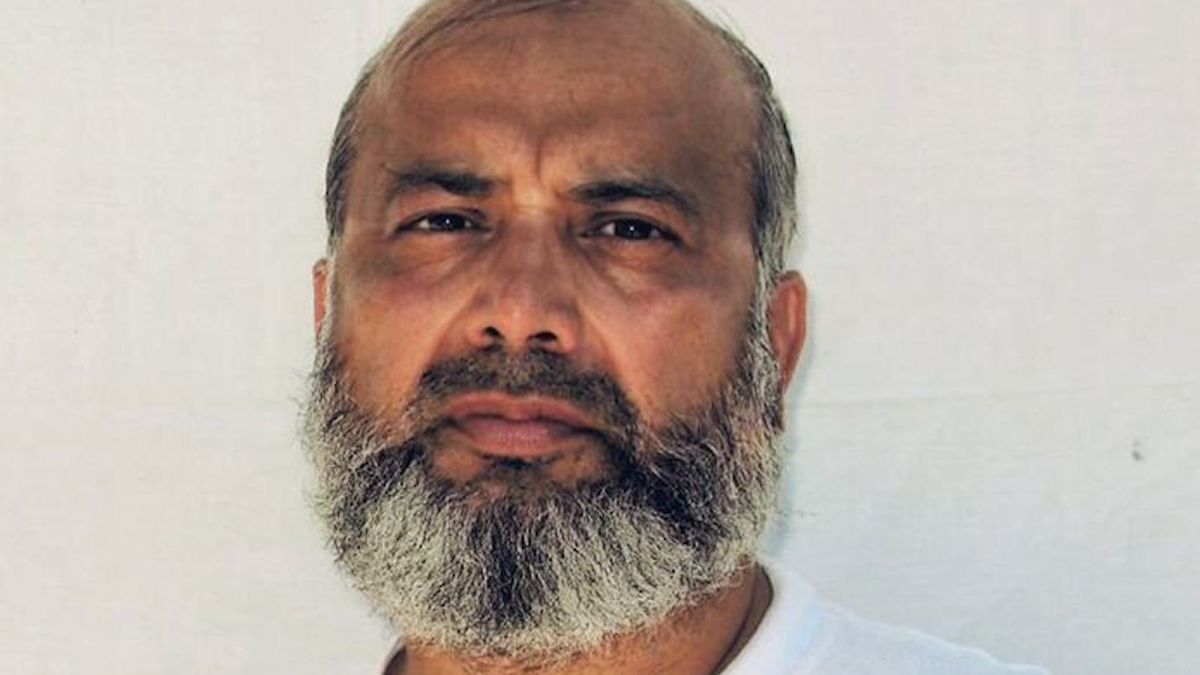AhlulBayt News Agency: The oldest inmate at the US-run infamous Guantanamo Bay military prison in Cuba, Saifullah Paracha, has been released to his home country Pakistan after 19 years of detention without trial.
Cuba’s foreign ministry said in a statement on Saturday it had "completed an extensive inter-agency process to facilitate the repatriation" of Mr. Paracha.
“We are glad that a Pakistani citizen detained abroad is finally reunited with his family," added the statement.
In his mid-seventies, the Businessman was arrested in 2003 in Thailand and accused of financing al-Qaeda, but was never charged like most prisoners.
Like most prisoners at Guantanamo, the businessman was never formally charged and had little legal power to challenge his detention.
In May, the US approved Paracha’s release concluding only that he was “not a continuing threat” to the US.
The Guantanamo Bay Prison, also known as Gitmo, was established in southern Cuba in January 2002 to hold inmates in a place where neither US nor international law would apply.
Since then, Guantanamo, which at its peak held more than 750 inmates, has been synonymous with human rights abuses perpetrated by the US government in the name of the war on terrorism.
UN experts say the Guantanamo Bay is a site of unparalleled notoriety, defined by the systematic use of torture, and other cruel, inhumane or degrading treatment against hundreds of men brought to the site and deprived of their most fundamental rights.
The experts also describe Guantanamo Bay as a profound symbol of the systematic lack of accountability for and censorship of the practice of state-sponsored torture and ill-treatment and the unacceptable impunity granted to those responsible.
Washington’s promises of closing down the notorious site go back to the first tenure of former President Barack Obama between 2009 and 2013. Obama had made the closing of Guantanamo one of his top priorities and issued an executive order to do so soon after taking office in 2009. However, he failed to achieve that goal by the end of his second term in face of stiff opposition in Congress. His successor, Donald Trump, rescinded Obama’s order to close Guantanamo.
Human rights advocates have expressed increasing frustration with US President Joe Biden for failing to deliver on a pledge to close Guantanamo Bay, leaving inmates languishing in the notorious offshore prison with no end in sight.
Nearly 40 prisoners remain in the world’s most infamous detention facility, which has become a symbol of human rights abuses.
Cuba’s foreign ministry said in a statement on Saturday it had "completed an extensive inter-agency process to facilitate the repatriation" of Mr. Paracha.
“We are glad that a Pakistani citizen detained abroad is finally reunited with his family," added the statement.
In his mid-seventies, the Businessman was arrested in 2003 in Thailand and accused of financing al-Qaeda, but was never charged like most prisoners.
Like most prisoners at Guantanamo, the businessman was never formally charged and had little legal power to challenge his detention.
In May, the US approved Paracha’s release concluding only that he was “not a continuing threat” to the US.
The Guantanamo Bay Prison, also known as Gitmo, was established in southern Cuba in January 2002 to hold inmates in a place where neither US nor international law would apply.
Since then, Guantanamo, which at its peak held more than 750 inmates, has been synonymous with human rights abuses perpetrated by the US government in the name of the war on terrorism.
UN experts say the Guantanamo Bay is a site of unparalleled notoriety, defined by the systematic use of torture, and other cruel, inhumane or degrading treatment against hundreds of men brought to the site and deprived of their most fundamental rights.
The experts also describe Guantanamo Bay as a profound symbol of the systematic lack of accountability for and censorship of the practice of state-sponsored torture and ill-treatment and the unacceptable impunity granted to those responsible.
Washington’s promises of closing down the notorious site go back to the first tenure of former President Barack Obama between 2009 and 2013. Obama had made the closing of Guantanamo one of his top priorities and issued an executive order to do so soon after taking office in 2009. However, he failed to achieve that goal by the end of his second term in face of stiff opposition in Congress. His successor, Donald Trump, rescinded Obama’s order to close Guantanamo.
Human rights advocates have expressed increasing frustration with US President Joe Biden for failing to deliver on a pledge to close Guantanamo Bay, leaving inmates languishing in the notorious offshore prison with no end in sight.
Nearly 40 prisoners remain in the world’s most infamous detention facility, which has become a symbol of human rights abuses.

